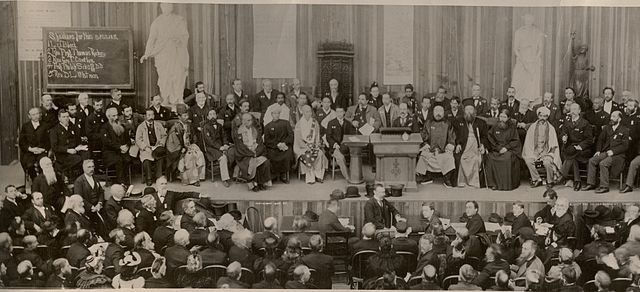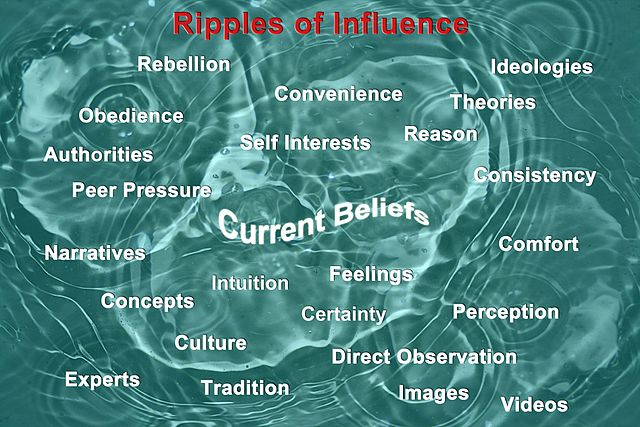Religious pluralism is an attitude or policy regarding the diversity of religious belief systems co-existing in society. It can indicate one or more of the following:Recognizing and tolerating the religious diversity of a society or country, promoting freedom of religion, and defining secularism as neutrality on issues of religion as opposed to opposition of religion in the public forum or public square that is open to public expression, and promoting friendly separation of religion and state as opposed to hostile separation or antitheism espoused by other forms of secularism.
Any of several forms of religious inclusivism. One such worldview holds that one's own religion is not the sole and exclusive source of truth, and thus acknowledges that at least some truths and true values exist in other religions. Another concept is that two or more religions with mutually exclusive truth claims are equally valid; this may be considered a form of either toleration or moral relativism. Perennialism or Traditionalism is the understanding that the exclusive claims of different religions turn out, upon closer examination, to be variations of universal truths that have been taught since time immemorial.
Sometimes as a synonym for ecumenism, i.e., the promotion of some level of unity, co-operation, and improved understanding between different religions or different denominations within a single religion.
As a term for the condition of harmonious co-existence between adherents of different religions or religious denominations.

The cross of the war memorial (Church of England/Christianity) and a menorah (Judaism) coexist at the north end of St Giles' in Oxford, England.
Catholic church, Mosque and Serbian Orthodox Church in Bosanska Krupa, Bosnia and Herzegovina
Temple of All Religions in Kazan, Russia
Congress of Parliament of the World's Religions, Chicago, 1893
A belief is a subjective attitude that a proposition is true or a state of affairs is the case. A subjective attitude is a mental state of having some stance, take, or opinion about something. In epistemology, philosophers use the term "belief" to refer to attitudes about the world which can be either true or false. To believe something is to take it to be true; for instance, to believe that snow is white is comparable to accepting the truth of the proposition "snow is white". However, holding a belief does not require active introspection. For example, few individuals carefully consider whether or not the sun will rise tomorrow, simply assuming that it will. Moreover, beliefs need not be occurrent, but can instead be dispositional.
Philosopher Jonathan Glover warns that belief systems are like whole boats in the water; it is extremely difficult to alter them all at once (for example, it may be too stressful, or people may maintain their biases without realizing it).
We are influenced by many factors that ripple through our minds as our beliefs form, evolve, and may eventually change.
Image: Religion collage updated







